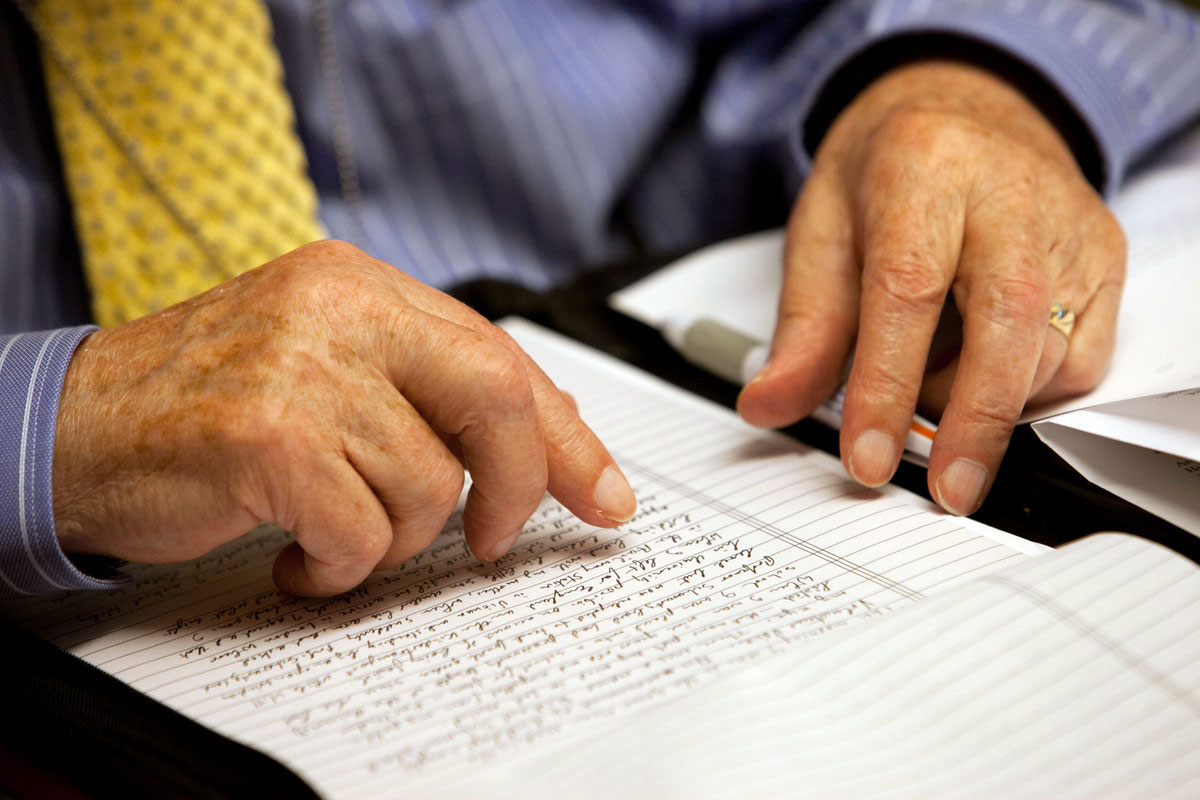Read reflections and testimonies written by Holocaust survivors in their own words.
Blog Home > memorials
-
Reinkensstraat 67
November 16, 2022
Reinkenstraat 67 is the address in Den Haag of an ordinary two-story home next to a fish market. It is an ordinary house on an ordinary street lined with ordinary small businesses and cafés. The address is less than a mile from the house where I was born and that my family called home until October 1942 when our family was torn apart, and we were forced to go into hiding. Reinkenstraat 67 is an address that Hannah Arendt might have called “banal,” an ordinary address where evil and mass murder assumed a personal dimension. A house I needed to see with my own two eyes, not to achieve closure, but to feel and bear witness to the depths to which the human soul can descend.
-
Bridges
October 22, 2020
The cabinet in my dining room was filled with tchotchkes. All those trinkets were scattered on four shelves in no particular order and, therefore, it was exceptionally difficult to find anything. In order to retrieve a particular dish that I wanted to use, I needed to take out numerous items that all ended up cluttered on the floor. On one occasion, I decided it was a perfect time to throw out some of these objects that had been slumbering there for many years.
-
Uncle Abram
October 22, 2020
I was born in Berlin in 1937. The following year, shortly before Kristallnacht, my father arranged for my family to be smuggled across the border into Belgium. We were very close to Uncle Abram—my mother’s brother—and his family. Their apartment was around the corner from ours in Berlin, and they also crossed the border illegally into Belgium around the same time.
-
Mamlock House
November 14, 2018
Two years ago I was on a nostalgic visit to Manchester, England, where I had lived. I visited Mamlock House, a Jewish center where many meetings and lectures were given.
-
Trip to Drohobycz
November 1, 2017
My “pilgrimage” to Drohobycz started a few days after the Holocaust Days of Remembrance and my own First Person interview and after my talks to high schools and synagogues about the Holocaust. That work turned out to be a kind of preparation for the exhausting, moving, and emotional trip that awaited me. Ania and I left Washington, DC, on May 9 for the beautiful landscapes of the Italian lakes where we spent the following eight days with my sister, Irena, and her husband, Manes. The overwhelming feeling of peace and serenity I felt there did not bring back the dark memories of the Holocaust.
-
Bosnia, 2016
November 1, 2017
In the summer of 2016, I went to Bosnia. I have been interested in Sarajevo for a long time.
-
Reunion in Ebensee
November 1, 2016
It has been 15 years since I last visited the little town called Ebensee that is nestled high in the Austrian Alps and since I stood at the grave of my father and wept. I never knew my father because he, like my mother and two sisters, was taken from our home in Holland and deported when I was only nine months old. My mother survived, but my sisters and father did not. My sisters were killed in Auschwitz. And my father went from The Hague to Westerbork, to Vught, to Auschwitz, to Mauthausen, to Gusen, to Steyr, and finally to Ebensee. He survived the hardships of the camp but died two months later of what we were told was tuberculosis.
-
Days of Remembrance in Rymanow
November 1, 2016
In August 2008, I took an unexpected journey into my family’s past. It began with an e-mail forwarded to me by the hospital where I worked. It was labeled “possible spam” and came from a Michal Lorenc of Rymanow, Galicia, Poland, and it read as follows: “I have very urgent information for Dr. Alfred Münzer. In his mother’s hometown Rymanow in Poland is organized the special celebration to honor the people who died in Holocaust. Could you give my e-mail to Mr. Münzer? I’ll send him more information. Sincerely, Michal Lorenc.”
-
May 1945 and May 2015
November 1, 2016
The sun is warm and so bright. I can feel the warmth on my face. It feels good. The noises around me are different; I have not heard them before. I am a little afraid, but my brother is holding my hand and my parents are with us. We hear people talking. Some are singing. It sounds nice, but I do not understand what is going on around me. I do not hear the frightening noise of the alarm that always sounds before an airplane flies over. The airplanes make a noise that we do not like.
-
A Gravestone for Those Who Have None
November 1, 2016
In 1964, the Cold War was alive and well, and travel from Hungary to Western Europe was still the privilege of world-famous performing artists—musicians, singers, and ballet dancers—as well as world-class athletes. However, travel restrictions from Hungary to other Communist countries had eased a little bit. One could apply for a one-time exit permit, and if the local chapter of the Young Communist Organization and the Trade Union gave a glowing endorsement, one could visit such coveted travel destinations as Romania, Bulgaria, or Poland.


